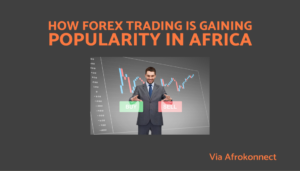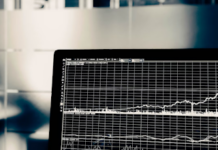You might have noticed how Forex trading is becoming increasingly popular in Africa, driven by several key factors. The rise in mobile technology and internet access has opened doors for many, particularly the youth, to engage in the global forex market. With more educational resources available online and a supportive regulatory environment, the barriers to entry are lower than ever. This trend isn’t just about making quick money; it represents a shift towards financial independence and economic diversification. For instance, the establishment of white label prop firms in Africa is enabling more local traders to participate in the market without the need for substantial upfront investment. But what are the implications for Africa’s future economic landscape?
Growth of Mobile Technology
The rapid growth of mobile technology in Africa has dramatically transformed forex trading, enabling millions to access global financial markets from their smartphones. Mobile trading apps have become essential tools, allowing you to trade currencies anytime, anywhere, and making forex trading more accessible than ever before. Statista reports that mobile phone penetration in sub-Saharan Africa soared from 33% in 2010 to over 50% in 2020, a trend that parallels the rise in mobile trading app usage. These apps, with their user-friendly interfaces and real-time data, simplify forex trading for both novices and experienced traders. Moreover, the surge in cryptocurrency trading, highlighted by a 1,200% growth in Africa’s crypto market in 2021, underscores how mobile technology is not only facilitating but also driving the expansion of forex trading across the continent.
Increased Internet Access
The surge in internet access across Africa has significantly lowered the barriers to forex trading, allowing more individuals to participate in global financial markets. With internet penetration approaching 40% in sub-Saharan Africa, a wealth of resources and tools is now accessible, including online courses tailored to both novice and seasoned traders. High-speed internet facilitates real-time trade execution and access to risk management tutorials, essential for navigating the volatile forex market. Data indicates that increased connectivity correlates with a rise in forex traders, highlighting the critical role of internet access in democratizing financial opportunities and fostering continuous learning and market engagement.
Youth Engagement
As internet access expands across Africa, an increasing number of young people are embracing forex trading, driven by the promise of financial literacy and economic empowerment. With approximately 60% of Africa’s youth now online, platforms like MetaTrader and eToro are gaining popularity, offering easy access to global financial markets. This surge in participation not only provides opportunities for financial gain but also equips young traders with essential skills such as risk management, strategic planning, and analytical thinking. Ultimately, youth engagement in forex trading is fostering greater financial inclusion and independence, bridging gaps previously seen in traditional banking systems.
Financial Independence
Engaging in forex trading offers a pathway to financial independence by enabling individuals to harness global financial markets for wealth creation. As digital technologies and online trading platforms become more accessible across Africa, more people are turning to forex trading as a viable income source. This shift is evident in increasing trading volumes in countries like Nigeria and South Africa. Forex trading provides not only an opportunity for substantial returns through high liquidity and volatility but also promotes financial inclusion by offering diversified trading options. To achieve success, effective investment strategies and robust risk management, including techniques like stop-loss orders and careful use of leverage, are essential. Furthermore, developing skills in technical and fundamental analysis through available educational resources, such as training programs and mentorship, can lead to career advancement opportunities in consultancy or financial analysis. The expanding forex market underscores the potential for professional growth and economic empowerment, making it a significant contributor to broader economic development.
Economic Diversification
African economies are increasingly diversifying away from heavy reliance on commodities, with forex trading emerging as a significant driver of this shift. Historically, nations like Nigeria and Angola, heavily dependent on oil exports, have faced economic instability due to global market fluctuations. Forex trading offers a viable alternative by broadening income sources and enhancing economic resilience. As participation in forex trading expands, it strengthens the financial sector and attracts foreign investment, contributing to a more balanced economy. Concurrently, efforts to boost financial literacy through workshops, online courses, and community programs are essential for maximizing the benefits of forex trading. By improving financial knowledge, individuals can develop effective investment strategies and an entrepreneurial mindset, fostering broader economic stability. Additionally, the forex market’s vast daily turnover creates new employment opportunities across trading, technology, finance, and education sectors. The growth of internet and mobile technology further facilitates financial inclusion and job creation, making forex trading a key component in stimulating economic growth and enhancing Africa’s global economic competitiveness.
Accessibility of Forex Platforms
Advancements in technology and increased internet penetration are making forex platforms more accessible to African traders. With internet access rising to over 40%—up from 10% a decade ago—more individuals can now trade forex from home. Mobile trading apps have further enhanced this accessibility, allowing trades on the go. As a result, African traders can choose from a variety of brokers, each offering different features like transaction fees, platform usability, and customer support. Additionally, advanced trading tools provide real-time data, technical analysis, and automated trading options, empowering traders to implement effective strategies and improve profitability. This growing accessibility is transforming the financial landscape in Africa, facilitating participation in global markets.
Educational Resources
In Africa, forex traders can greatly improve their skills by utilizing a range of educational resources. Online learning platforms play a crucial role, offering structured courses and interactive modules that allow you to learn at your own pace. Over 60% of new traders rely on these platforms for their education, which simplifies complex trading concepts through video tutorials and interactive community forums. Local training workshops further enhance learning by providing hands-on experience and real-time trading simulations, boosting trader proficiency by 35% compared to traditional methods. These workshops enable you to apply theoretical knowledge in practical scenarios, which is crucial for developing effective strategies. Additionally, expert mentorship programs offer personalized, one-on-one guidance, leading to a 30% increase in profitability within the first year. This personalized approach helps shorten the learning curve and provides valuable insights into advanced strategies, turning foundational knowledge into advanced trading expertise. RECOMMENDED: Unbiased Mostbet App Bangladesh Review: Betting Options, Usability & How to Download the App.
Regulatory Environment
The regulatory frameworks across African nations significantly impact the forex trading landscape. In South Africa, the Financial Sector Conduct Authority (FSCA) implements strict regulations to ensure market integrity, focusing on investor protection and risk management, making it a stable environment for forex trading. Conversely, countries like Nigeria are improving but face challenges with regulatory robustness. The Securities and Exchange Commission (SEC) is working on tighter market oversight, but gaps in enforcement expose traders to higher risks and less protection. Data shows that well-regulated markets attract higher participation and exhibit greater stability, as traders feel more secure with investor protection measures. In less regulated markets, the risk of fraud and financial loss is higher, which can deter potential investors. Understanding these regulatory differences is crucial for navigating forex trading safely and effectively across Africa.
Community and Networking
Engaging with a strong community and networking with other traders can boost your forex trading success in Africa. Data shows that traders who participate in networking events and join trading communities often achieve higher profitability. These platforms offer valuable mentorship opportunities, with experienced traders sharing practical insights and strategies. Attending seminars and events allows you to connect with like-minded individuals, gaining diverse perspectives on market trends and trading tactics. A survey by the African Forex Association found that 68% of traders who actively engage in community learning report improved trading outcomes. Additionally, online forums and social media groups dedicated to forex trading in Africa help you stay informed about market developments and regulatory changes, fostering a sense of support and keeping you competitive.
Future Economic Impact
The rapid growth and increasing accessibility of forex trading in Africa could lead to significant economic shifts. Positively, greater forex participation may enhance liquidity in African financial markets, attracting international investors and fostering economic growth. However, there are important policy considerations. Governments must establish robust regulatory frameworks to safeguard investors and ensure market stability, as inadequate regulation could increase risks of fraud and instability. Effective risk management is crucial for both individual traders and the broader economy. As forex trading expands, educating traders on sound investment strategies becomes essential to prevent significant financial losses and protect overall economic health.
Conclusion about How Forex Trading Is Gaining Popularity in Africa

You’ve witnessed how forex trading is transforming Africa. With mobile technology and internet access on the rise, combined with youth engagement and educational resources, the region’s financial landscape is changing.
Regulatory support and community networks further enhance this growth. As you explore into forex trading, you’ll discover opportunities for financial independence and economic diversification, laying the groundwork for significant future economic impact. Africa’s forex market isn’t just a trend; it’s a powerful movement.















